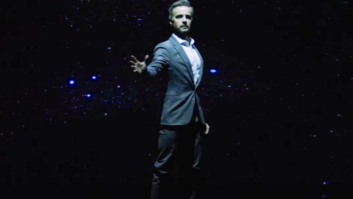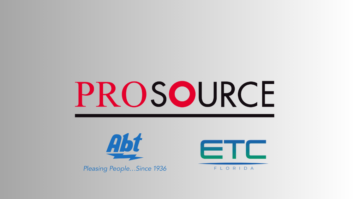The movie and music industries and their peer-to-peer (P2P) rivals went before the U.S. Supreme Court last week to argue whether developers of P2P file-sharing software should be held liable when their users share music and video over the Internet in violation of federal copyright laws.
A decision could be issued between now and the court’s June recess.
After the court hearing, the Consumer Electronics Association’s (CEA) president/CEO Gary Shapiro said he was optimistic that the justices “will uphold the standards set by the Court in the landmark Betamax decision more than 20 years ago.” He said he was “thrilled” that during oral arguments, “the justices appeared to recognize that innovation and technology are important and that technologies should not be subject to prior scrutiny by copyright owners.”
During oral arguments in the MGM v. Grokster case, the entertainment industries argued that the primary intent of software offered by Grokster, StreamCast Networks and other P2P software developers is to let consumers quickly and easily infringe copyrights. Donald Verrilli, attorney for MGM and other plaintiffs, argued that Grokster uses copyrighted material as seed money and profits from it. The P2P companies, he said, “intentionally built a network of infringing uses and actively encouraged infringement.”
Technology companies and CEA, however, have said they fear a ruling against the P2P companies will overturn or erode the court’s own 1984 Betamax precedent. Such a decision, they contend, threatens to stifle technological innovation because inventors would fear building a product that could be used by some for illegal copying. Opponents of the content industries fear a chilling effect on the development of future digital recording A/V technologies and technologies allowing the sharing of movies and music within a home over a home network.
In the 1984 case, called Sony Corp. of America v. Universal City Studios, the court ruled 5-4 that, even if some users did engage in infringing activities, Sony and other VCR makers were not liable for “contributory” copyright infringement because the products offered “substantial non-infringing uses.” The court, however, didn’t define “substantial.” At the time, the court also held that consumers bought VCRs mainly to time-shift TV programs for later noncommercial viewing, constituting a “fair use” of copyrighted material under copyright law.
During oral arguments last week, Grokster lawyer Richard Taranto argued his company had no way to discern legal from illegal downloads and simply gave customers a way to share files. In addition, he contended, Grokster streamlines authorized downloads and offers a low-cost tool for legitimate users. The legality of digital-era P2P software is supported by the analog-era Betamax decision, and a new standard for Grokster could stifle innovation, he argued.
Some justices, however, took exception with some of Grokster’s arguments. Justice Ruth Bader Ginsburg said she was “puzzled” by Taranto’s description of the Sony case as “clear.” That decision, she said, took 13 pages to explain how the decision would be applied. Justice David Souter called some of Grokster’s explanations “bizarre.”
For his part, Justice Stephen Breyer seemed to question whether the music industry was simply reacting to a threat to their old ways of doing business. “The monks had a fit” when Gutenberg printed the Bible, he pointed out.
The justices also questioned why the music industry hasn’t placed other potentially threatening technologies, such as Apple’s iPod, into its gun sights. Verrilli, however, claimed that Apple’s business plan is aimed at music-CD owners who want to legally transfer them to the iPod, although some incidental copyright violations possibly occur. Grokster’s entire business plan, on the other hand, is based on illegal downloads, with some incidental legal ones, he contended.
After the hearing, CEA’s Shapiro called the case “the most important case before the Supreme Court this year.”
“The Betamax principles,” he continued, “stand as the Magna Carta for the technology industry and are responsible for the explosion in innovation that has occurred in the U.S. over the past 20 years. If these principles are undermined, we may witness the end of popular and revolutionary products and technologies such as the iPod, TiVo and even the Internet itself, and also the premature deaths of thousands of products that still only exist as a concept in the mind of young entrepreneurs.”
Additional reporting by Mark Rockwell of Reed Business Information’s Wireless Week, a sister publication of TWICE.













